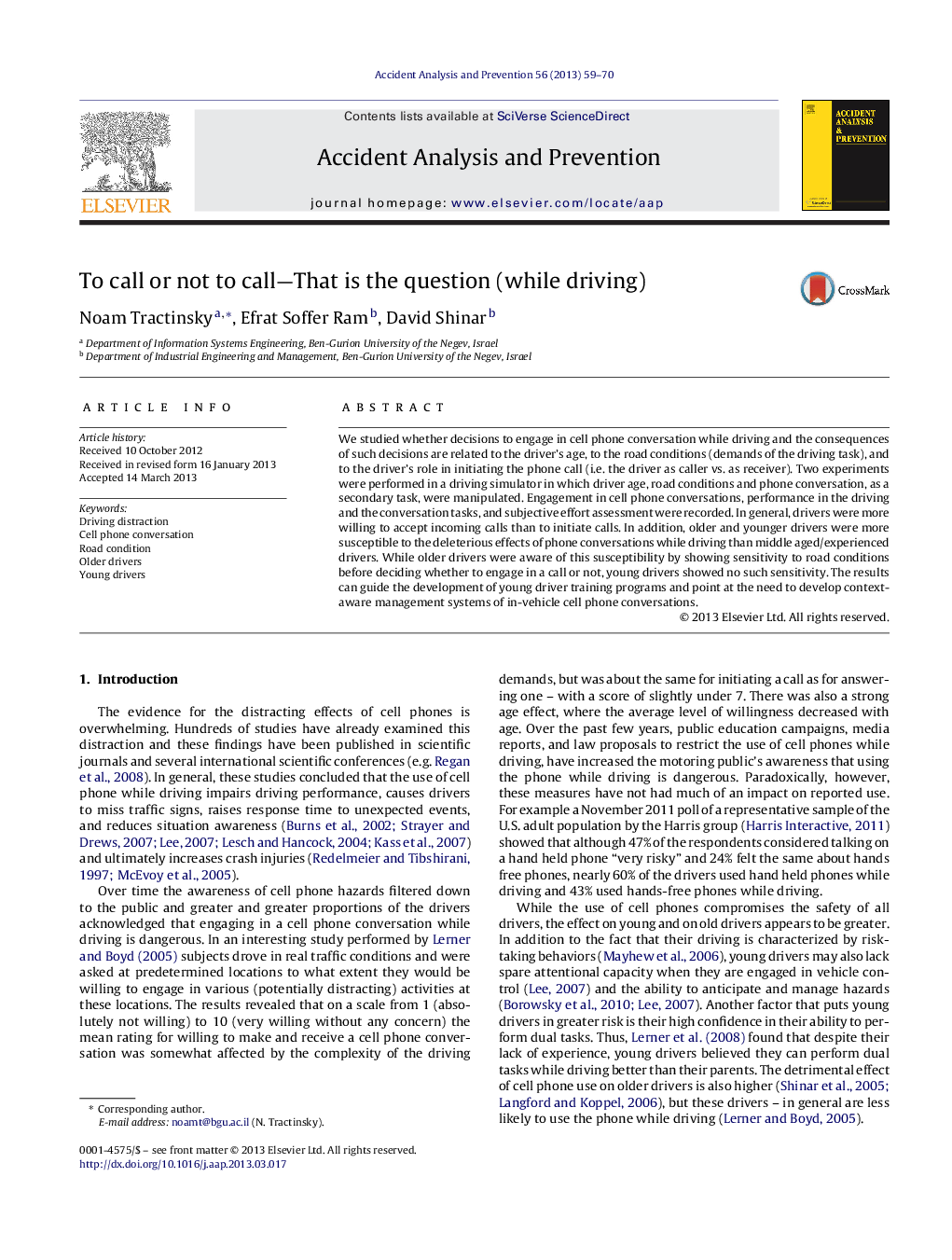| Article ID | Journal | Published Year | Pages | File Type |
|---|---|---|---|---|
| 572530 | Accident Analysis & Prevention | 2013 | 12 Pages |
•We studied decisions to engage in cell phone conversation while driving.•In general, drivers were more willing to receive calls than to initiate calls.•Old and young drivers were most susceptible to distractions by phone conversation.•Old drivers’ decisions to talk on the phone were sensitive to road conditions.•Young drivers’ decisions to talk showed no sensitivity to road conditions.
We studied whether decisions to engage in cell phone conversation while driving and the consequences of such decisions are related to the driver's age, to the road conditions (demands of the driving task), and to the driver's role in initiating the phone call (i.e. the driver as caller vs. as receiver). Two experiments were performed in a driving simulator in which driver age, road conditions and phone conversation, as a secondary task, were manipulated. Engagement in cell phone conversations, performance in the driving and the conversation tasks, and subjective effort assessment were recorded. In general, drivers were more willing to accept incoming calls than to initiate calls. In addition, older and younger drivers were more susceptible to the deleterious effects of phone conversations while driving than middle aged/experienced drivers. While older drivers were aware of this susceptibility by showing sensitivity to road conditions before deciding whether to engage in a call or not, young drivers showed no such sensitivity. The results can guide the development of young driver training programs and point at the need to develop context-aware management systems of in-vehicle cell phone conversations.
